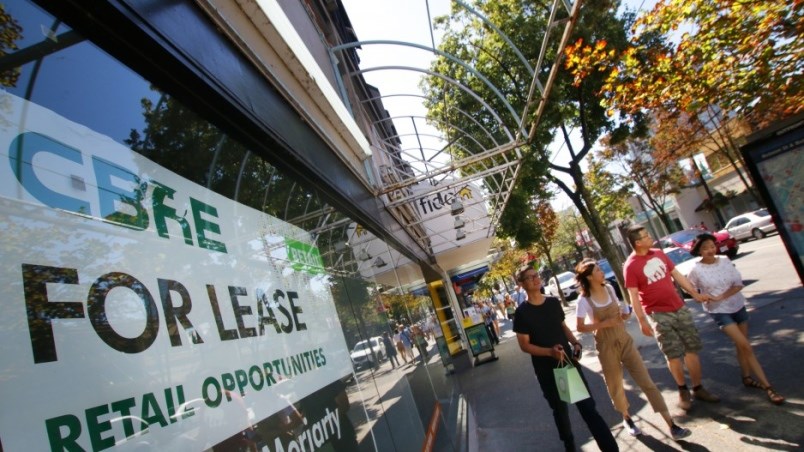Ottawa’s plan to join provincial governments in reducing small businesses’ rent burdens by 75% starting this month is a good first step in supporting the sector’s housing costs - but requires a much more detailed follow-through in order to truly benefit the economy.
That is the view of Andy Yan, director of SFU’s City Program and one of Vancouver’s top urban-planning and data analysts when it comes to public policy and development.
Yan said he is concerned about a number of missing details in the plan announced Friday: Does the rent support only go to landlords who are currently paying mortgages? How does the funding reach small businesses that do not have accounting or legal departments? And who is actually eligible?
“There’s a greater problem in this idea,” Yan said, noting prime minister Justin Trudeau only mentioned a requirement that the affected business’s rent must be below $50,000 a month. “They don’t have a way of assessing what small business would be eligible. We actually don’t know the characteristics of the small businesses that have gotten support right now.”
Previously, SaveSmallBusiness.ca - a grassroots coalition that says it is opposed to a “debt-forward solution” to small businesses being crushed by the pandemic-induced lockdown - called for a pause on the first $10,000 of commercial rent for the next three months.
“We paused our businesses to protect our communities’ health,” the group’s petition said. “Government needs to help us pause our expenses so we’re still in business when it’s time to restart the economy.”
Yan said the group’s angst about current subsidies being debt-based in understandable, since many small businesses already hold lines-of-credit before the crisis - and do not feel more access to debt is the answer.
He added, too, that Ottawa needs to make sure the rent support is launched in such a way that it does not become a simple wealth transfer from government to wealthy landlords - who then fail to pass on the benefits to the actual small businesses.
“If we give out these rental subsidies, we are effectively bailing out the landlords,” Yan said. “But afterwards, the landlords can still in theory sell the property; and by selling, they are made whole. But that would not be the case for the tenant small businesses, who still become obliterated.
“Maybe the answer is a modified loan,” he continued. “Maybe the government can become silent partners in these businesses so that the loans will ultimately be paid out. Maybe, when it comes to commercial properties, and if you are effectively bailing out these landlords with mortgages, maybe the government can own some of the equity.”
Yan is also concerned that, if the availability of these aid programs are not made clear to a wider swath of the small business community, some will simply miss the availability window and suffer - perhaps by permanently closing.
“They need a feedback loop so that as few businesses as possible are left behind,” he said. “Because there is that danger; I’m so concerned about immigrant entrepreneur businesses going to slip through the cracks. And you don’t want this program to elongate the inequalities that already exist.”



